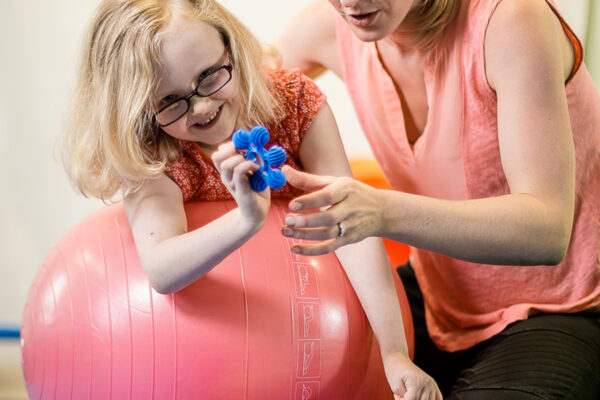How to make the most of therapy for children with SEND

Most children seem to reach everyday milestones effortlessly. When a child has additional needs, however, getting them to say words, take steps, sleep soundly, keep friends, or just stay well, can feel like a challenge. Therapy can help when you don’t know where or how to start.
What is therapy?
For some people, the idea of doing therapy with your child can simply sound like hard work. As a parent, you may not want to feel like you are “working” with your child. However, it doesn’t have to be like that. Think of therapy as everyday magic that can make life better, simply by adjusting things or thinking differently.
Therapies are interventions: the ‘added extras’ that help your child stay well, grow stronger and get better at everyday things, when they aren’t doing as well as their peers. These interventions can be: exercises, programmes, treatments, different approaches or might include using special ‘kit’ (like adapted cutlery or seating systems). It can be talking or other ways of communication like Makaton or PECS. Therapy can be medication and getting that right.
It’s worth making the most of appointments to really get a handle on what you can do:
- Before you meet, write down your concerns and take these with you. Keeping a diary and sending in a ‘pen picture’ ahead of time, detailing how things are for your child right now can help focus the discussion and ensure you don’t forget to raise any burning issues.
- Try and arrange appointments at times that suit your child; if they’re tired in the afternoon, ask for a morning appointment. Be prepared for clinics running late; take snacks and activities to occupy your child. If your child is working at their best, the therapist is more likely to make an accurate assessment.
- Include your child as much as you can: if possible, encourage your child to explain in their own words how they feel. You might be surprised by their feedback.
- Ask questions: whether you are worried that it takes your child longer to pick up new skills or why they are socially awkward, it will help you both to make sense of the problem.
- If you don’t understand, your child won’t either so keep asking: explanations need to be simple and strategies must be straightforward.
Find out what you can both do at home between appointments. Check that you understand what you will be doing and why. If the advice sounds counter-intuitive ask why it will work. It’s much harder to take a different approach and embrace new ideas if it doesn’t make sense. As one parent noted, “it was teaching me what to do that made the big difference for both of us”. There are lots of ways your therapist can teach you effectively, like giving you real examples and showing you what they mean or rehearsing an exercise with you so you can practise until you feel confident. Do ask them for a written copy of recommendations so you have something to refer to, which could also include useful websites and online resources. If you need other resources or equipment which are difficult to get hold of, ask for help and if you trial a new treatment, be sure to report unexpected side effects.
Of course it’s not just at home that the adjustments can be made, if your child attends school or nursery, be sure to get them involved and have the therapist visit the setting or ensure that the written recommendations reach them and are put into action.
It’s important your child doesn’t feel ’done to’, to make it all seamless:
- build any exercises or strategies into your daily routine
- harness and adapt everyday activities
- enjoy being truly effective by making it fun
- and remember, not every moment needs to be filled with purposeful activity, give your child time and space to relax and dream
Be realistic: it‘s what happens day in day out that matters most. Until it feels like second nature, doing things and thinking differently can feel like hard work. Your new ideas need practise: lots and lots of it. So don’t expect to see big changes very quickly.
Be kind to yourself. Take a longer view: quiet optimism and patience will make a difference. With practice we can all be our child’s best therapist.



